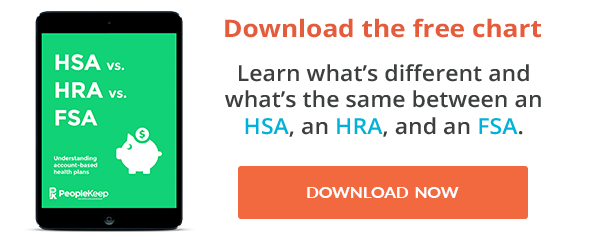 schemes benefits medical costs offer employers a way to help employees with medical expenses and health insurance. Popular among small employers, medical costs for benefit plans offer employers affordable and feasible way of providing employee health benefits.
schemes benefits medical costs offer employers a way to help employees with medical expenses and health insurance. Popular among small employers, medical costs for benefit plans offer employers affordable and feasible way of providing employee health benefits.
To help business owners wrap their head around how this type of benefit plan works, this article provides a two-minute guide to Benefits social medical costs
what is a medical expense benefits plan?
a benefit plan for medical expenses is a general term for a system of health benefits that provides employees with money tax-free for out-of-pocket medical costs, including, in some cases, individual health insurance premiums.
Common types of medical expenses benefit plans
There are several types of plans available. The most common type of benefit plans for medical expenses include:
-
Health Reimbursement Plans (HRPS)
-
health reimbursement arrangements (HRA)
-
health savings accounts (HSA)
-
health flexible spending accounts (FSA)
health reimbursement Plans (HRPS)
health reimbursement plans, or HRPS are benefit plans that allow a non-taxable reimbursement of health insurance premiums and preventive care. With HRPS:
-
All contributions must come from the employer (employees can not contribute)
-
the employer owns the funds and pre-financing bank accounts of third parties are not necessary.
-
There are no minimum or maximum contribution.
HRPS are often the basis of repayment of the premium or contribution "pure" defined health benefits models.
learn more about HRPS.
arrangements reimbursement Health (CRH)
health arrangements refund (aka health reimbursement accounts or CRH) are schemes that allow a non-taxable reimbursement of medical expenses out of pocket, and in some cases, Medicare premiums. With CRH:
-
All contributions must come from the employer (employees can not contribute)
-
the employer owns the funds and pre-financing bank accounts of third parties are not necessary.
-
There are no minimum or maximum contribution.
a common practice is to pair an HRA with a high-deductible health insurance plan to reimburse employees for deductible expenses.
In limited situations, CRH can be offered as a benefit to the independent health used to reimburse employees eligible individual health insurance premiums and / or medical costs outside the poached.
Read more on CRH.
health savings accounts (HSA)
HSA are individual bank accounts belonging to employees that allow the payment of duty of tax or reimbursement of eligible expenses out of pocket medical, and in some limited cases, Medicare premiums. With an HSA :.
-
Entry in a high deductible health plan is required
-
2015 the HSA contribution annual limit for an individual is $ 3,350
-
employees have the funds. they are not linked to employment.
Learn more about HSA.
Health Flexible Spending Accounts (FSA)
Health RTA are established employer benefit plans that allow a tax reimbursement of medical expenses eligible.
-
Most often, employees are funded RTA.
-
The annual contribution limit is $ 2,500 for 2015.
-
funds are linked to employment.
Read more about RTA.
Identify the right plan for your business
to help determine what type of benefit plan is right for your business and employees account for these different characteristics:
-
may contribute
-
Cost employer contributions
-
maximum annual contributions
-
allowed medical expenses
-
tax treatment
-
employee eligibility criteria
-
Requirement (if any) have some type of health insurance plan
-
Rollover funds
-
requirements administration / management
-
Portability
-
accounts Requirement (if applicable) to pre-fund
for a side-by- side comparison download this PDF graphic.
Conclusion
benefit plans for medical expenses such as HRPS, HRA, HSA and FSA offer small employers a way offer health benefits with or without a traditional health insurance plan. What type of benefit plan is right for your business? First, understand how each medical expense benefit plans are working. Next, determine what type of diet will help you achieve your health benefits objectives.
What questions do you have on benefit plans for medical or how small employers use them? Leave a comment or question below.


0 Komentar